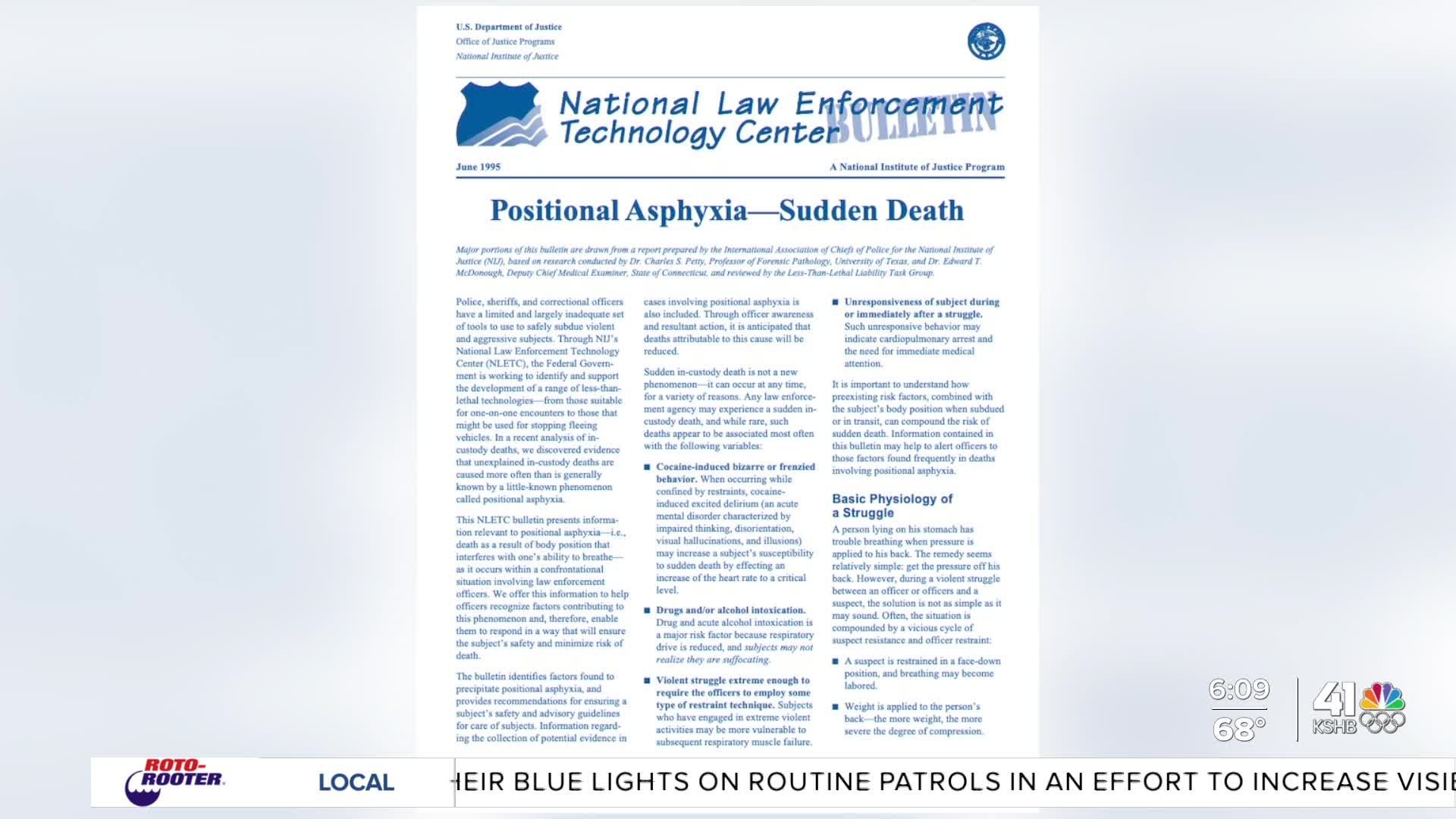KSHB 41 reporter Rachel Henderson covers neighborhoods in Wyandotte and Leavenworth counties. Share your story idea with Rachel.
—
A Wyandotte County jail deputy has been charged in connection with the death of Charles Adair, who died after a fight with jail guards that involved prone restraint.
The technique is one the U.S. Department of Justice has warned against for 30 years.

Lauren Bonds, executive director of the National Police Accountability Project and a police accountability expert, spoke with KSHB 41's Rachel Henderson Tuesday about the issue.
"Transparency and accountability are so important," Bonds said.
District Attorney Mark Dupree announced his office charged Deputy Richard Fatherley in connection to Adair's death at the Wyandotte County Detention Center on July 5.

"We do not believe this was an intentional act," Dupree said at a press conference on September 18.
Bonds told Henderson the fact that [charges] were pursued in this instance really signaled to me that this was a 'pretty egregious use of force."'
According to the autopsy, one of the officers knelt on Adair's back during the struggle.
Adair became unresponsive and died from complications of mechanical asphyxia. That means his breathing was physically obstructed and there was a lack of oxygen.
The report also listed pre-existing health conditions that contributed to his death, including cardiovascular disease and cirrhosis.
The death has left Adair's family searching for answers about what happened to their loved one.
"It just doesn't resonate with us…Charles was not a violent person," Anthony Adair, Charles' brother, told KSHB 41's Alyssa Jackson on Sunday.
Anthony Adair said something doesn't feel right about the circumstances.
"Something just doesn't smell right," Anthony Adair said. "I mean, there’s so many questions."

Bonds says the incident falls within the definition of prone restraint.
"That would definitely fall within the definition of prone restraint to my knowledge," Bonds said.
Bonds explained that individual department protocols can conflict with broader best practices when it comes to use of force policies.
"It's usually some kind of language around, 'You know, only do it as long as you need to get control of the suspect or the offender,'" Bonds said. "I think until we communicate that there are better ways to restrain somebody, better ways to gain compliance, it’s important to take more time in getting compliance of somebody that you’re trying to arrest or restrain, we’re going to continue to unfortunately see these tragic deaths."
The Department of Justice issued a bulletin 30 years ago warning that restraining someone on their stomach should be avoided if possible, noting that prone restraint interferes with a person's ability to breathe.
The case echoes George Floyd's death in 2020, which involved an officer kneeling on Floyd's neck and restricting his breathing.
Floyd's death was one of over 1,000 use of force deaths not involving guns between 2012 and 2021, according to an Associated Press investigation.
Bonds said the growing number of such deaths is frustrating, but preventable.
"I think it's incredibly frustrating," Bonds said.
She believes categorical prohibitions on prone restraint could help reduce these incidents.
"I think that there are a lot of ways that law enforcement officers can gain control of somebody that don’t require kneeling on their back, that don’t require pressing them into the ground," Bonds said.
Both Bonds and the Adair family are demanding transparency in the case.
"We want everything released," Anthony Adair said.
"This story was reported on-air by a journalist and has been converted to this platform with the assistance of AI. Our editorial team verifies all reporting on all platforms for fairness and accuracy."






